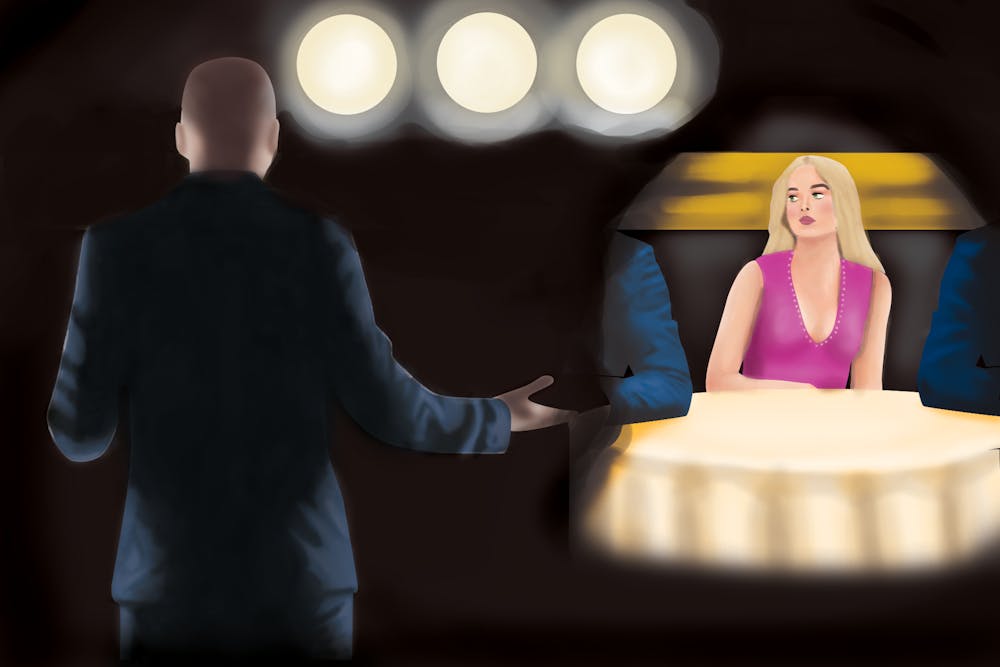Less than three minutes into his opening monologue at the 81st Golden Globe Awards, host and comedian Jo Koy dropped his first of a series of controversial jokes: "'Oppenheimer' is based on a 721-page Pulitzer Prize-winning book about the Manhattan project, and 'Barbie' is on a plastic doll with big boobies!”
Cameras quickly found Greta Gerwig, the director of “Barbie,” awkwardly nodding along with a pained expression.
For too long, women have battled to reframe what — and who — is funny. It is easy to turn women into the punchline. Women who laugh too hard are called “hysterical” and despite numbers of successful female comedians, screenwriters and actors, there’s an underlying societal belief that men are funnier than women.
Comedy has been significantly intertwined with feminism throughout history and “Barbie” exemplifies how powerful of a tool it can be. The movie takes sexism and turns it on its head in a way that is funny: Ken thinks the patriarchy is about horses. It is also highly relatable as the climax of the movie jokes about being told how to play sports and being sung at.
The importance of “Barbie” being a comedy is that audiences can humorously engage with a conversation about sexism, feminism and historically vulnerable topics, while also experiencing a range of emotions alongside Barbie as she discovers what it means to be a woman.
What makes Koy’s comments burn like salt in a wound is the fact he’s belittling a movie so many women felt empowered by and reducing the movie to a sexual joke.
Koy doesn't seem to be the only one who missed the point of the movie. A post from @TechnicallyRon on X compiled different one-star Letterboxd reviews of "Barbie," calling it “an alienating, dangerous and perverse film” and “a pink acid trip that feels like being slapped by lots of confusingly attractive people.” My favorite reviews say “the feminist agenda will kill us all,” and “they won’t be happy until we are all gay.”
Though these reviews are laughable, they prove that Barbie’s feminist message against sexism was not universally received.
There are countless other jokes Koy could’ve made about “Barbie.” It doesn’t take an expert to think of something funny to say. The entire premise of Letterboxd is that it is a platform where anyone can say anything about a movie. Just a short scroll down the top reviews of “Barbie” and one can easily find better jokes than Koy’s.



